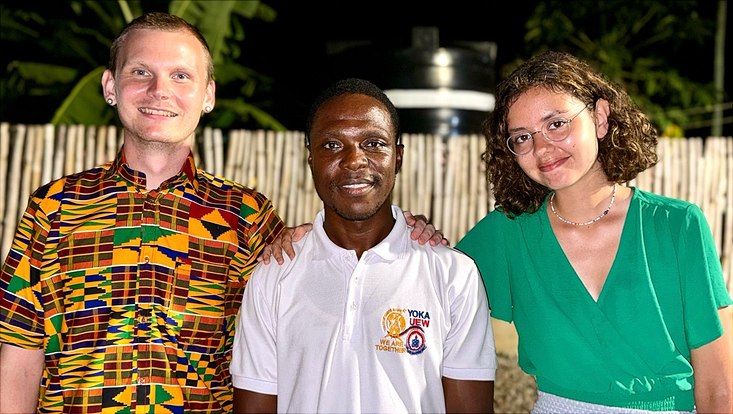Nucleus Professorship for Information Systems and Digital Innovation“These days, all major challenges have to do with digitalization.”
18 June 2021, by Christina Krätzig

Photo: Private
Prof. Dr. Jan Christoph Recker has joined Universität Hamburg as a nucleus professor. With its call for applications for these professorships, the University aims to advance the development of key research areas. The application calls for nucleus professorships (nucleus is Latin for “kernel”) are being advertised within the scope of the Excellence Strategy of the Federal and State Governments.
Mr. Recker, you’re an expert for digitalization, innovation, and entrepreneurship. Digitalization and sustainable business are two of your main areas of research. Which issues currently preoccupy you?
These days, all major challenges that society is facing have to do with digitalization. Whether it is the COVID-19 pandemic or the climate crisis, without IT there are no solutions. Many companies are currently trying to use IT to become more sustainable, for example. However, one by no means trivial matter must be taken into account: on the one hand, digitalization saves resources—when business trips are replaced by online meetings, for instance. On the other hand, however, power consumption increases due to the computer processes. Hardly anyone is aware of these dimensions. According to estimates, by 2030 IT will be responsible for one fifth of the world’s energy consumption. The situation is particularly acute when it comes to artificial intelligence. The life cycle assessment for the development of voice recognition assistants like Siri and Alexa is far worse than it is for a car over its entire service life, for instance. We must keep this in sight.
In which areas does digitalization lead to increased sustainability?
It is often the case that smart, sustainable solutions are actually only even possible thanks to digitalization. A good example here is the development of a circular economy, so circular value creation that moves away from the model of “develop new things, use them, then throw them away.” To enable devices to be used for longer and repaired or recycled instead of replaced, digital solutions are needed to track the life cycle of products and to also be able to set incentives for action—both for companies and end customers.
A great deal has already been achieved in this field and especially young entrepreneurs strive to pursue such approaches. Among other things, I supported a group that developed a digitally supported reusable packaging system for food delivery and takeaway services that proved a huge success.
You’re both an economist and a computer scientist. What exactly does your role involve?
Digitalization is usually deemed purely an IT concern. But only considering certain aspects of information technology is far too short-sighted. To find sound sustainable solutions, you need an interdisciplinary approach involving cooperation among researchers from a range of different fields. Economists have long had to concern themselves with IT—indeed, hardly a company can manage without it today. And since I have always taken an interdisciplinary approach in my work as a consequence, I see it as my job to identify the different issues and to bring researchers together accordingly.
Can you give us an example of such a cooperation?
Just take the current debate on the digitalization of schools. Having enough computers to use is of course an important prerequisite for the success of the homeschooling of school students. But this is just one step—and probably not even the most important one. Providing school students and schools with devices is not enough. For homeschooling to work, countless other aspects must also be considered. How can knowledge be imparted online, for example, or does the traditional allocation of time for lessons still make sense? How do learning processes that take place at home rather than at school look? When, how, and where do children experience optimal learning situations—and how can the potential new time allocations for digital teaching be implemented in a family-friendly and pedagogically effective manner? Such considerations can lead to very fundamental questions, for instance about performance evaluation systems. And computer scientists cannot answer such questions. Rather, sociologists and learning researchers must work together with computer scientists and countless others to find answers.
You’re not just the Professor for Information Systems and Digital Innovation at Universität Hamburg, but also a nucleus professor. What will be your approach for this role?
The nucleus professorships are intended to encourage the development of important research topics. For me, it is above all about linking the topic of “digitalization” with other existing or new issues being researched at the University. I am also committed to the bilateral knowledge exchange—from the university to society, but also from society back to the university. Which issues play a role in the Hamburg region and how can digitalization help with these? I would also like young entrepreneurs to receive greater support from the University and am therefore involved in the Transfer Committee as well as in the development and supervision of the Management Transfer Lab. The Faculty of Business Administration (Hamburg Business School) is setting up this lab to give students interested in innovation and in starting a company somewhere to go at the University to learn and apply the necessary expertise.


